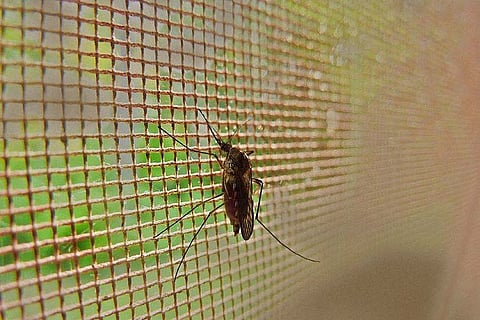

A 7-year-old boy from Kerala was recently diagnosed with the West Nile Fever. This illness, which is caused by the West Nile virus, is transmitted to humans via mosquito bites. The mosquitoes get the virus through infected birds. While the West Nile fever is relatively unknown to the region with only a few sporadic cases being reported in the past year, there are several other mosquito-borne illnesses which one should be wary of, as summer approaches.
“West Nile Fever is very rare. The boy has been started on supportive treatment and is being monitored,” says Dr Sakina K, Malappuram District Medical Officer (DMO). “It is not usually seen and this is a one off case. Person to person transmission is not possible, so people should not get worried unnecessarily.” The West Nile Virus is spread through infected mosquitos. No vaccine currently exists, so all treatment is generally based on the symptoms that the person shows.
Malaria is one of the most commonly seen cases of vector-borne diseases which are seen throughout the year, with several doctors stating that they do see a spike in cases around summer. “This year, there have been a lot of activities done to raise awareness about malaria,” explains Dr Sakina, adding, “As a result, we are hoping that there will be less cases seen this year, but we are prepared to treat anyone who may present with it.”
One of four different malarial parasites can cause malaria: Plasmodium vivax, Plasmodium falciparum, Plasmodium malaria and Plasmodium ovale. Most commonly seen cases of malaria in south India tend to be either of the vivax or falciparum type. The female Anopheles mosquito is the one which acts as a vector for the disease in humans. When an infected mosquito bites an individual, the infection gets passed on. “The most commonly seen symptoms of malaria are high grade fever, lasting for more than a week, along with chills,” adds Dr Sakina. The diagnosis is based on certain blood tests which will determine the presence of a malarial parasite. Treatment involves giving medications which target the appropriate parasite.
A recently conducted survey showed that the threat of another mosquito borne illness looms over parts of Kochi. Dengue is transmitted to people by the bite of an infected Aedes aegypti mosquito. It can cause high grade fever, chills, bleeding of the gums and bruising under the skin. Blood tests help confirm the diagnosis. In most cases, people are given supportive treatment according to the symptoms they present with. “We also monitor their platelet levels, because it is usually the drastic drop in platelets that leads to severe complications,” says Dr Sakina.
She advises that most people take preventive measures to keep mosquito breeding to a minimum. “Don’t leave standing water outside. Stagnant water attracts mosquitoes which can then lay their eggs in there and this again turns into a cycle.” In addition, she recommends that people take all necessary precautions against mosquitos through the use of protective clothing, repellant and mosquito nets.